This article was originally published in the Design 2023 Issue of the WatchTime print magazine.
Beyer Watches & Jewellery in Zurich, Switzerland, is the oldest jeweler in the world, at 262 years and counting. But this doesn’t prevent it from expressing youthfulness in other ways. Beyer introduced the Time Warp Collection in April 2022, a series of 30 virtual NFT watches designed by four very different creators — making Beyer the first jeweler to offer NFT watches. In normal circumstances, NFT objects are bought and sold with cryptocurrencies. Because Beyer wanted to offer this collection to anyone who is interested, not just the super tech-savvy, it was possible to buy the watches either with Ethereum or a credit card. The first 100 watches were “minted” (or introduced to the market) in an initial drop known as the “Genesis Drop” for $450. The purchaser received a “Mystery Watchbox” containing one of 30 models. The purchaser did not know in advance which one it will be. Despite this, or perhaps precisely because of the element of surprise, the first 100 watches were sold out in a few minutes. The second drop happened on June 29, with 382 NFTs priced at $950.
One of the four creators of the Beyer crypto watches (shown here are also photos of the objects created by the other three) is the German-born, Swiss-residing designer named Simon Husslein, who has designed watches for Nomos, Braun, and Ventura, as well as for his own brand, Bolido. We spoke with him about the project, his creations, and the role that NFT collectors’ items could play in the future.
Simon, even in the wild world of watches, NFT is becoming a really hot topic. You are one of four creators who have designed a collection of NFT watches for the jeweler Beyer. What was your approach here?
The first idea that came to me was to make a watch that everyone knows but would be impossible to own. That’s how the watch from the film Pulp Fiction occurred to me.
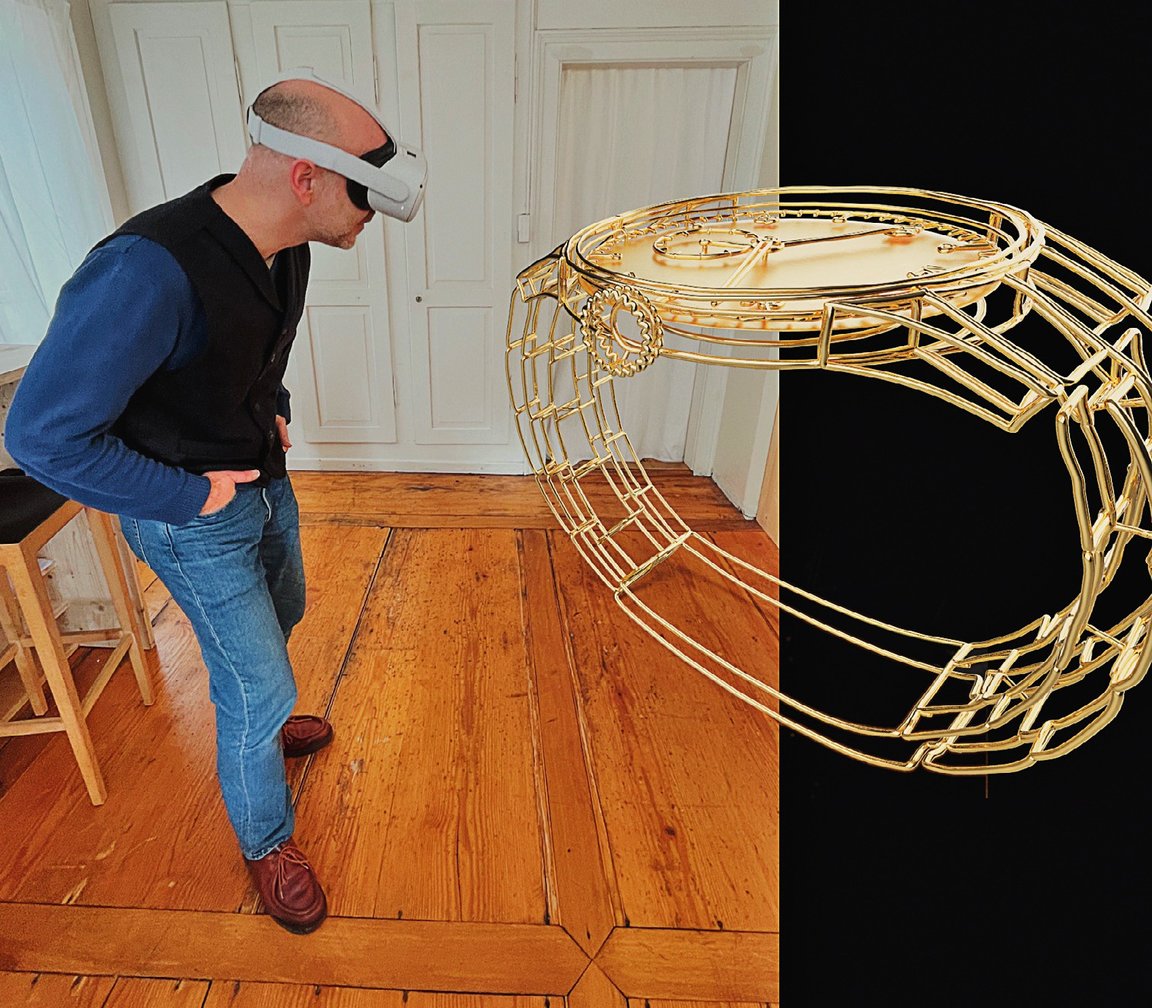
Bruce Willis received it as a child from a soldier, a comrade of his fallen father, who had kept it hidden in his body for years. It’s a cult scene.
This film has millions of fans, but there is only one actual prop from the film. So, I found the idea interesting to generate this watch as an NFT. I developed a digital version that looks like the one in the film and only changed the crown. It is recessed. However, later on we decided not to mint this watch but to have it be part of the collection. We believed that the scene glorified war to a certain extent.
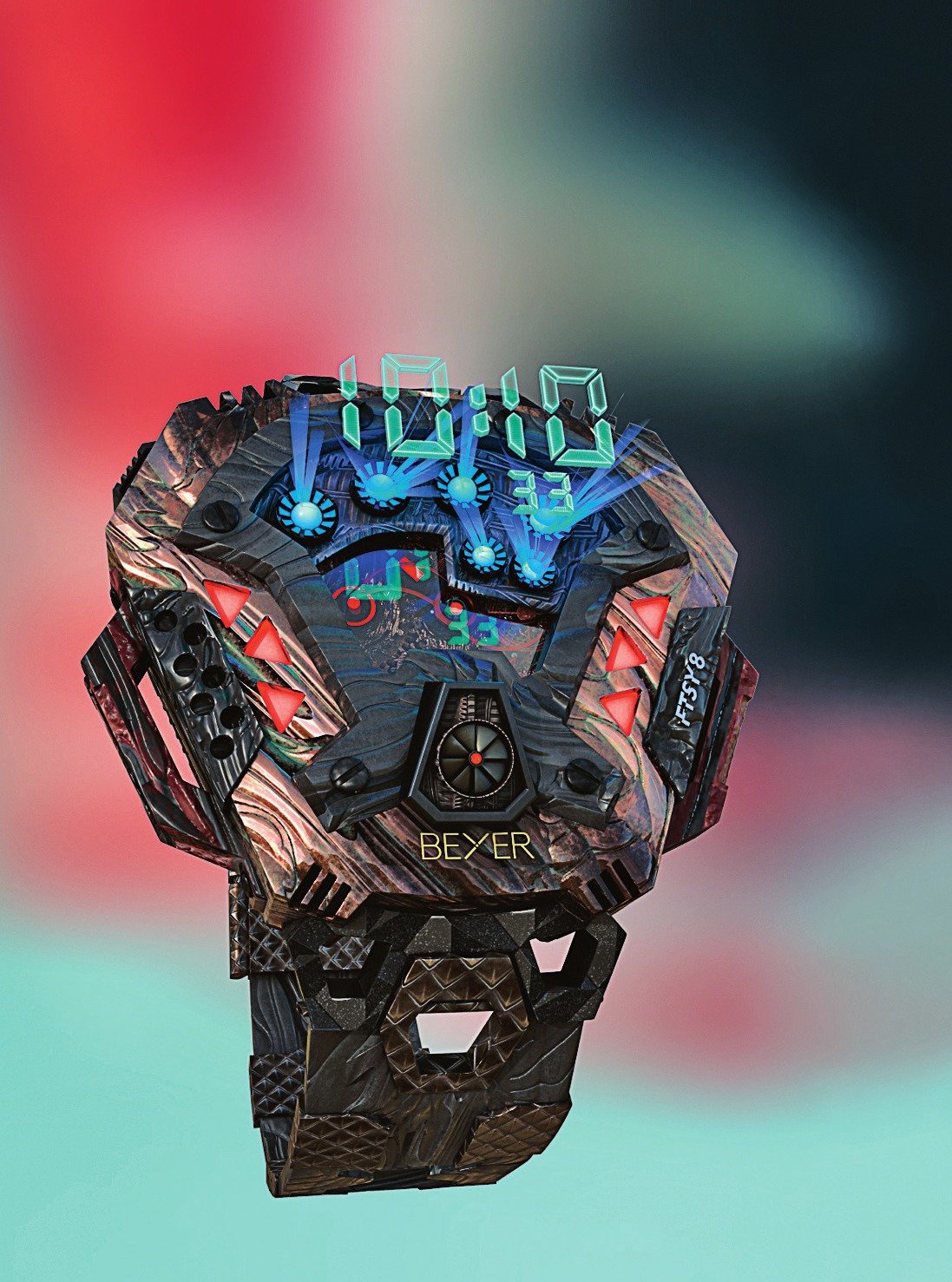
Another of your NFT watches is called “Continuum” and is made of a single, continuous thread that composes the case and bracelet, as well as the dial and hands, and spins continuously like a spiderweb. Could someone build a watch like this one in real life?
Yes, in principle. You could 3-D print it, and then you would have an object like a cobweb. But this watch doesn’t have a movement! There are NFT watches that can be built in real life and others that can’t. That’s the exciting thing about this project. You see the transition process from the physical to the digital. I asked myself what was impossible to make as a watch. To build a three-dimensional watch like a cocoon, made of single, continuous thread. That’s actually not possible. And now we have this watch. The conceptual approach is fascinating to me.
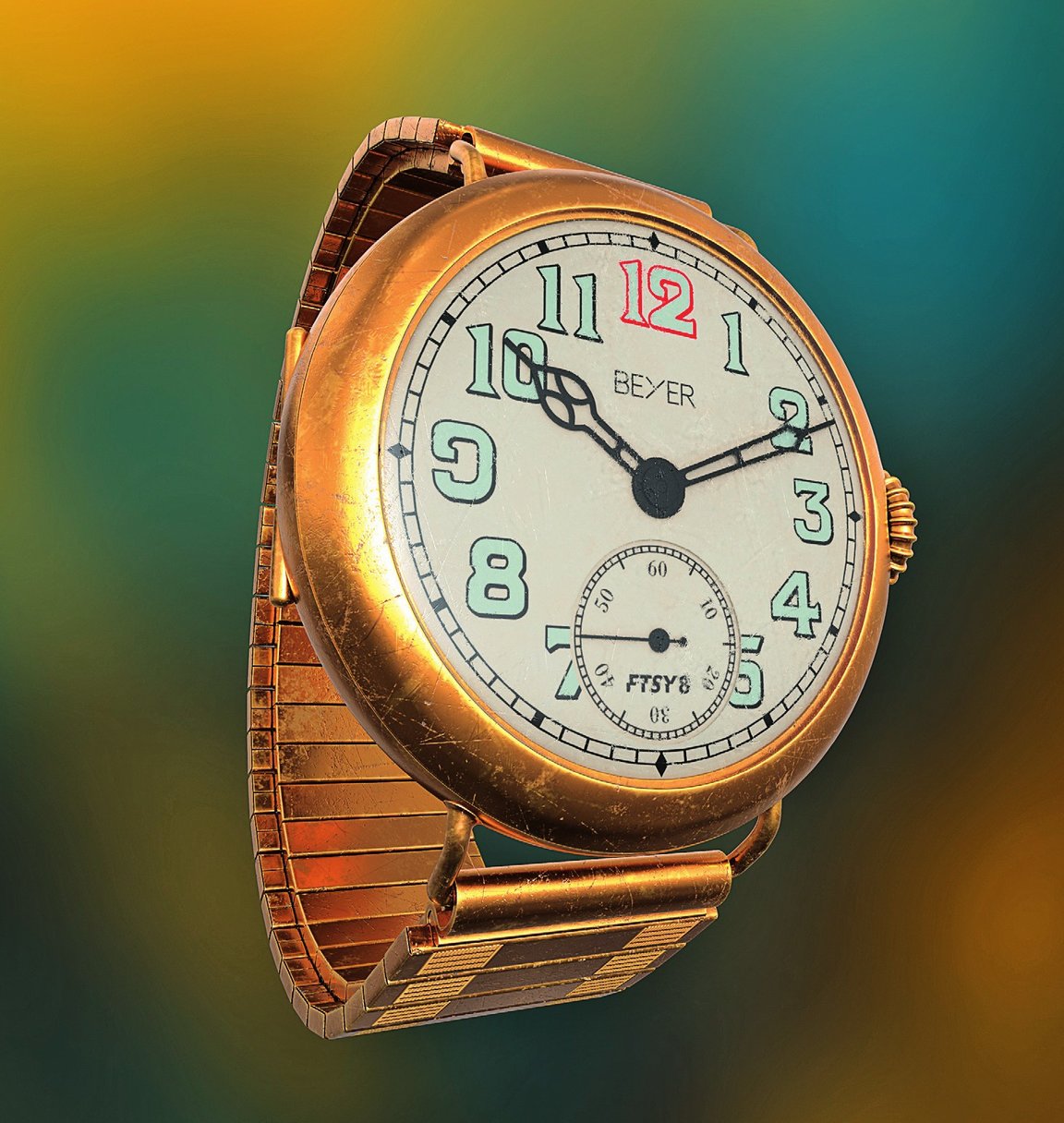
What kind of program did you use to design the watch?
I sketched the Continuum directly in virtual space with a VR headset. The process is like using a mouse and a keyboard but more direct, since you can walk around the object with the controller inside the headset. You can think of it like working on a large sculpture made of wood or stone. The software I used is called Gravity Sketch and is used primarily by automobile and product designers.
The NFT watches are not 2-D pictures, they are 3-D objects, right?
Yes, the watches are all designed and built as 3-D objects. However, the current technology of bringing NFTs to the public is still somewhat limited. For example, the wallets where you store your NFTs don’t accept 3-D files, just pictures and films. This is why, in the case of Beyer, we showed the watches as rotating animations. You see a film of the object — a rendering — that turns 360 degrees on its own axis. This is how the watch is clearly described visually.
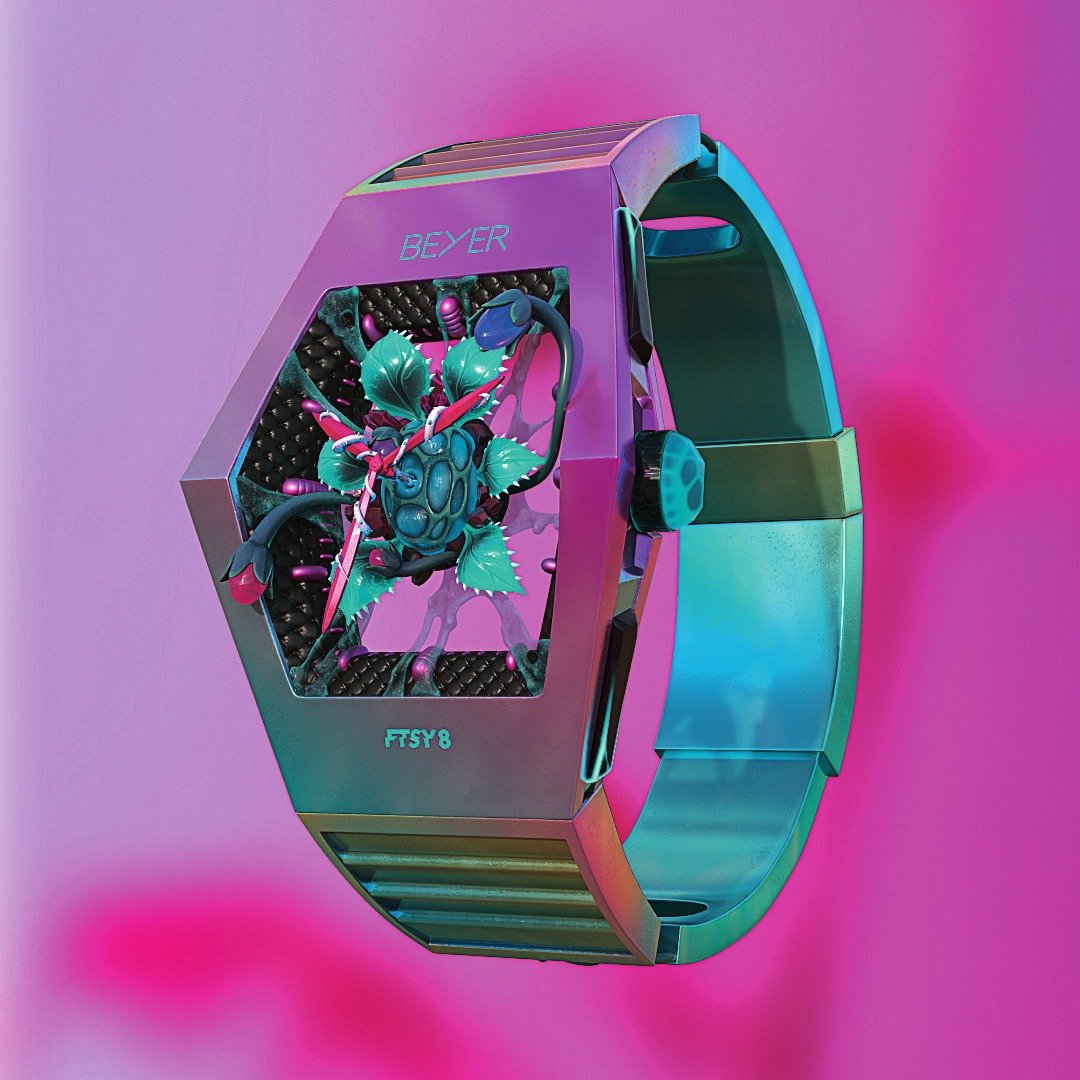
Did you get to know the other designers who were working on the Time Warp project?
Yes, but strangely enough, only at the end of the project. Only after a while did I understand the great historical potential of this project. Working for Beyer is a pioneering work that is testing this out in the watch world. It will be exciting to see how digital watches (not to be confused with conventional digital watches!) develop over time. If you look at the history of watches that were built, the origins were radically different from what we see today. When more people are working on this, this will create another world with its own technologies, new archetypes and cult objects.
In April, Beyer began to sell your NFT watches with an initial drop, the “Genesis Drop.” The first phase was sold out in a few minutes. The second drop followed in June. Were you able get your own creations in any form?
I got one NFT of each of the watches I designed for Beyer for the Genesis Drop. I have added them to my wallet on a platform called Meta-Mask (metamask.io). As a creator, I could make countless more NFT objects. But the watches from the Beyer collection are something special because they are part of the official collection.
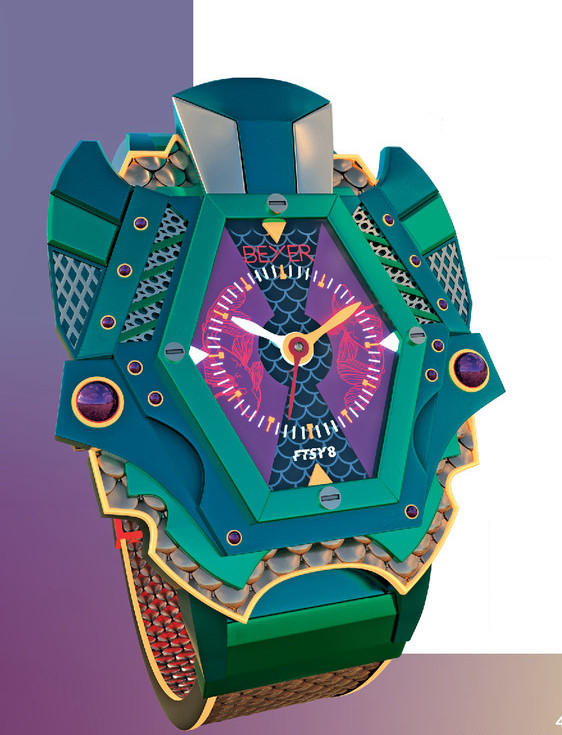
NFT is still a thing for young tech-savvy people. How do you explain to an old-schooler what is so exciting about all of this?
NFTs are part of a larger shift in which a part of our identity is migrating from the physical and to the digital space. So, just like we might see a person on the street now who is wearing cool sneakers, and another one is wearing a special watch, and the third one is wearing a fur coat. These are things that distinguish these people from each other and express something about their personalities. We will increasingly be making such statements about our identities in the digital realm. There are already early examples: If I visit someone’s Instagram account, I see what is important to them. If they are interested in bikes, or like to vacation in Tuscany. The NFT world will make this kind of communication more encompassing and more detailed. Owning NFTs makes a statement. For someone who doesn’t spend time in the digital world, this doesn’t appear to make much sense. But the network generation is already building up a digital identity. They play VR chat with personalized avatars or put digital assets on social media. This world will change from below. More people will begin to join in and buy NFTs— not just the young people.
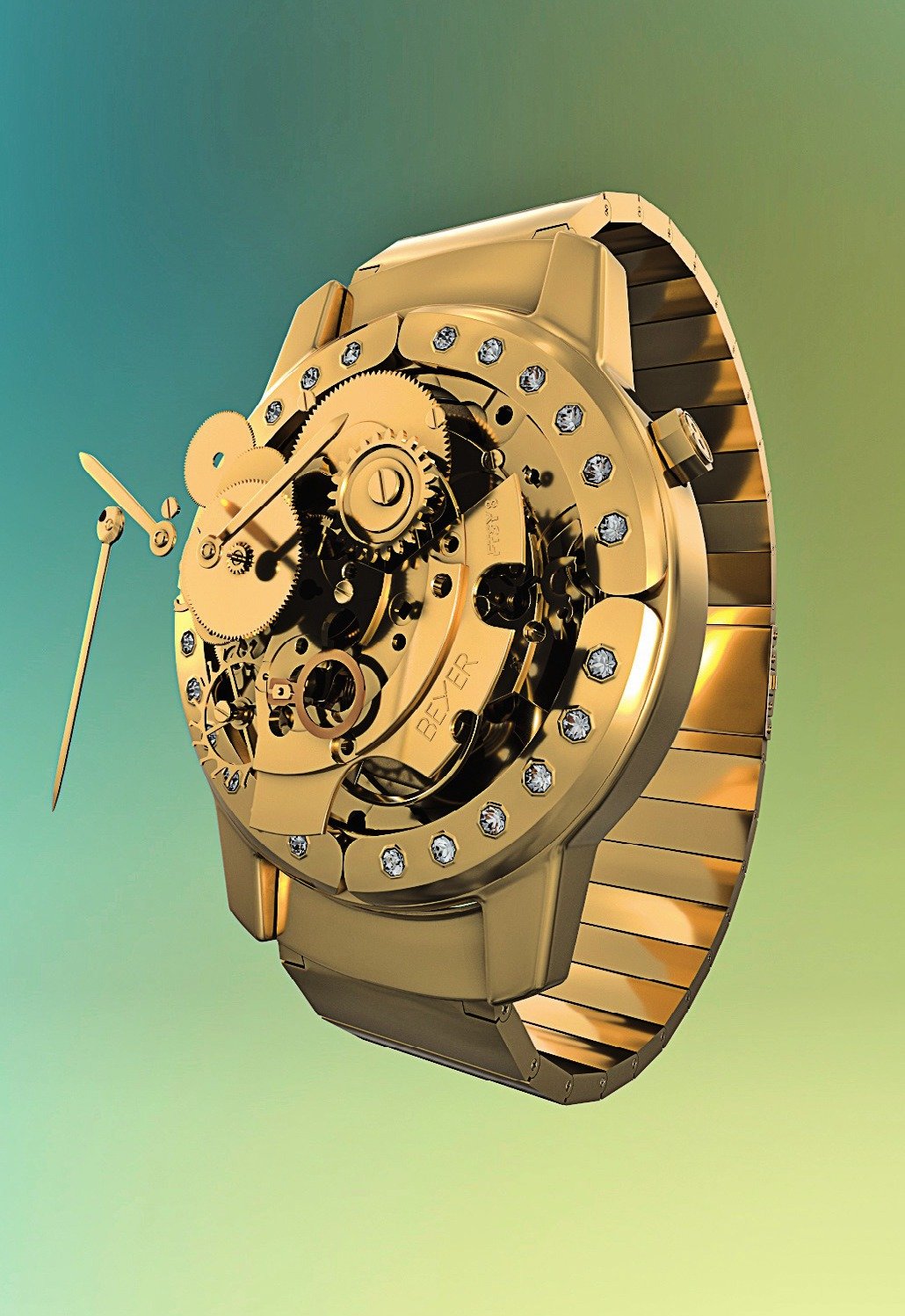
Are you saying that you won’t be putting on your cool sneakers to walk around on the street, but will instead be showing them on your avatar in the metaverse?
The possibilities of integrating digital assets are almost limitless. Whether you take an object to a virtual concert or put it in your virtual home, the desirability of something that represents a great creation, or a desirable brand, will naturally also work in the digital world. It’s not about whether a virtual Rolex can replace a physical one. When I own a digital Gucci asset as one of only 100 people — or maybe even the only one in the world — that is something special. I am certain there will be a very large shift into the digital world. The metaverse is still in a very early stage at the moment. Only a very few people are spending time in the 3-D digital world, but it won’t be long before we are working, learning, meeting friends wearing a headset and that will be completely normal. These experiences will influence us completely and inspire ideas that we can’t even imagine today.
To subscribe to the WatchTime print magazine, click here.
This news is republished from another source. You can check the original article here








